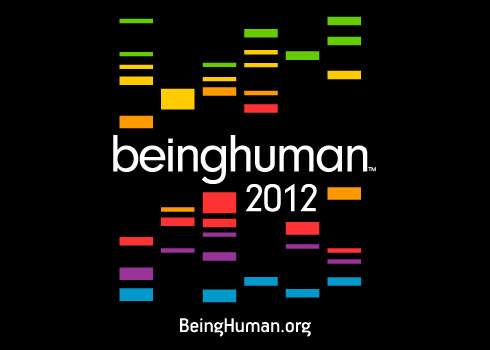The idea for a public gathering, Being Human 2012: The Science of Human Experience, is about two years old; however, my underlying interest in contemporary science and evolutionary theory goes back much further—more than ten years.
In the early 2000s I realized one day that I had about 10,000 days left to live. (That’s the average life expectancy for a male in his late forties.) Up until that point in my life I had been very fortunate and no particular need seemed unfulfilled. I took it upon myself to investigate what possibly could be the most rewarding and useful way to spend those 10,000 days. I ventured on to study the teachings of the Far East and New Age Spirituality as well as modern research on happiness set-points, genetics, neuroscience and evolutionary theory.
Over the period of several years of exploration, an interesting picture of what it means to be human emerged. In particular, our motivations, fears and desires revealed themselves to be inextricably linked to our biology and evolutionary history. It was a fascinating adventure that changed the way I understood and, even more important, how I experienced my life.
After writing the book, Ego: The Fall of the Twin Towers and the Rise of an Enlightened Humanity, with my friend Michael Taft, the idea to share some of what had an irreversible, positive impact on my life sprang up naturally. I founded the Baumann Foundation in 2009 to facilitate further research and public conversation on the nature of Being Human.
I’m convinced that we do not need to understand the ultimate nature of reality in order for us to develop a better understanding of who we are as human beings. We can explore the nature of human experience with contemporary tools and find that much of what we discover matches well with what contemplative traditions have been speaking about for millennia. I believe that the mystery of existence is not diminished by scientific investigation. Quite to the contrary, the incomprehensible mystery of existence is further revealed.
Understanding how the brain processes information perceived through our senses is fascinating on its own, but our intent at Being Human 2012 goes beyond mere analytical fascination and into the realm of our conscious experience. In particular, we want to explore how our perception, feelings and emotions, as well as our cognitive functions and social interactions, shape the experience of our daily lives.
An evolutionary and scientific perspective may reveal why and how emotions inform our thinking and underlie our behavior. Equally interesting is the exploration of our felt sense of self, the feeling of being someone. For millennia contemplative traditions have brought forth the notion of no-self. Today, with the help of neurosciences and evolutionary theory, the understanding of the nature of self may add another, complementary perspective to the one gained from contemplative practice.
Being Human 2012 is our initial venture to bringing scientific insights into a public forum. It is our intention to create an annual event that furthers the public conversation about the experience of Being Human.
Everyday, fresh insights from all fields of science shed new light on the processes of human experience—the how of feeling, thinking, and believing—and invite us to redefine who we are as human beings.
If you’re interested in exploring new territories around human processes such as how we perceive and “make sense” of the world and how we relate to others and ourselves, join us for this landmark gathering. Pioneers on the frontier of human understanding will guide us on this exciting exploration: David Eagleman, Paul Ekman, Jon Kabat-Zinn, Jane Hirshfield, and more.
Being Human 2012: The Science of Human Experience will take place on March 24 at the Palace of Fine Arts in San Francisco, CA. See the livestream.
Peter Baumann recently co-authored a book with Michael W. Taft entitled Ego: The fall of the twin towers and the rise of an enlightened humanity. For more information about it, click here.






